Patagonia employees give presentation in career speaker series
The presentation lasted for the entirety of period six, from 1:50 to 2:45 p.m. Photo by: Alejandro Hernandez
May 3, 2023
The local employees spoke about college and job prospects to VHS students
Fernando Diaz and Cameron Embree, software developers at Patagonia, a clothing company, gave a presentation to students in the college and career center during period six on May 3. Their presentation was the information technology event in the college and career center’s career speaker series and the second-to-last event. While the event was open to all VHS students, all attendees participated as a part of Linda Bergfeld’s period six AP Computer Science Principles class. Diaz and Embree spoke about their college and professional experiences that led to their careers at Patagonia and answered student questions about the process.
Diaz led the presentation as Embree sporadically gave input. Diaz, a Pacifica High School graduate and first-generation college graduate, noted how he went to Ventura College for three years undecided on his major and dabbled in biology before transferring to Cal Poly, ultimately graduating in 2018. He encouraged students to join clubs, attend career fairs as early as possible, utilize professor office hours and join hackathons in university to maximize one’s chances of landing a job in the IT field.
Diaz said, “We recommend that students, in general, go to a community college or straight to a four-year [university]. [But] I believe any path [to college] is correct. It’s all person dependent, so some people may thrive doing community college first and some may thrive going straight to a four-year [university].”
Embree interjected and stated that students should pick a major they like or remain undeclared if it is an option. Embree and Diaz concurred that computer science was the best major for those pursuing similar careers, as it is the most general major and is an option at most universities, as opposed to niche majors like cyber security. Embree added that students could major in computer science as a foundation and add an emphasis or pursue a master’s degree in a particular area within the subject. Embree also said that while computer science knowledge acquired during university is likely to become outdated quickly, the public speaking, communication and learning skills developed in a university matter more than conventional wisdom would have students believe.
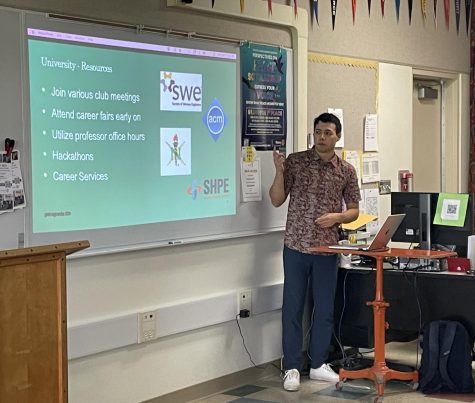
Embree said, “I would say the biggest takeaway [for] students [from the presentation] should be that every company needs software. [Diaz and I] work for Patagonia. It’s a clothing company. It’s not a software company. But there’s still a place for us to feel taken care of, be well compensated and still do what our passion is, which is software development, but do that at a place that’s not necessarily a software company. It also means you don’t necessarily have to move to go somewhere else. You don’t have to move to San Francisco if you want to get into software. Opportunities are available everywhere.”
Saiya Sterling ’24 said, “The presentation was well put together and informative. [I] discovered that you are able to pivot [and] alter your major [in college].”
After finishing his slides on his education, Diaz spoke about the transition between university and the professional world, one marked by frustrating hiring practices. However, he noted that the process of getting a job was made easier by his efforts at career fairs while at Cal Poly. In fact, his first job at NavAir at Naval Air Station Point Mugu came out of a Cal Poly career fair. He worked at NavAir for three years, eventually leaving for Patagonia, where he has worked for the past year.
Diaz and Embree spoke about the perks of working at Patagonia, including work-sanctioned leisure and a program allowing Patagonia employees to take two hours off per year for activism. They also noted how Patagonia would bail out employees arrested during their activism, so long as it is within reason according to the company’s values. Nonetheless, Diaz and Embree conceded that working as a software developer can be highly demanding, as they work nine-hour days while sat working at a computer.
Diaz said, “Attending these talks [and being] in the AP computer science class [helps] get [them] ahead. [Students interested in IT should] get more exposure and learn from these kinds of resources.”



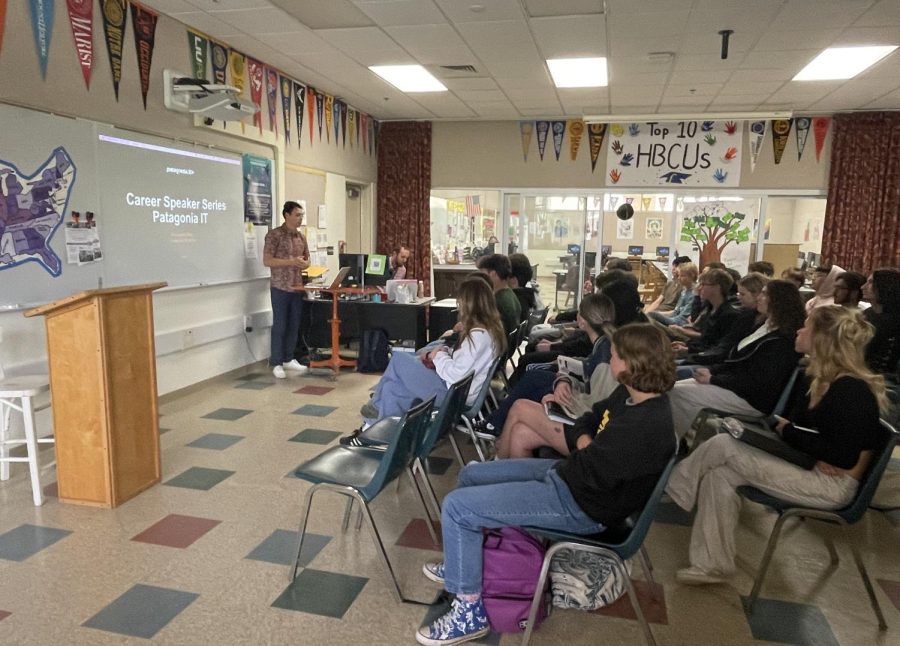
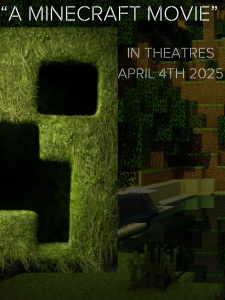
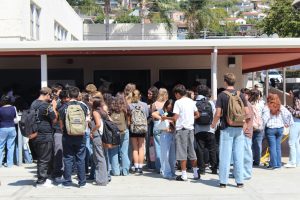
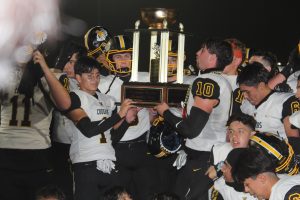

![Lindsay Guzik, new assistant principal said, "I am settling in [at VHS] pretty well. I know a lot of the students, so that makes it a little bit easier coming from Cabrillo, and it's been nice to see them all grown up." Photo by: Abraham Kassa](https://thecougarpress.org/wp-content/uploads/2025/09/IMG_9728-300x200.jpg)